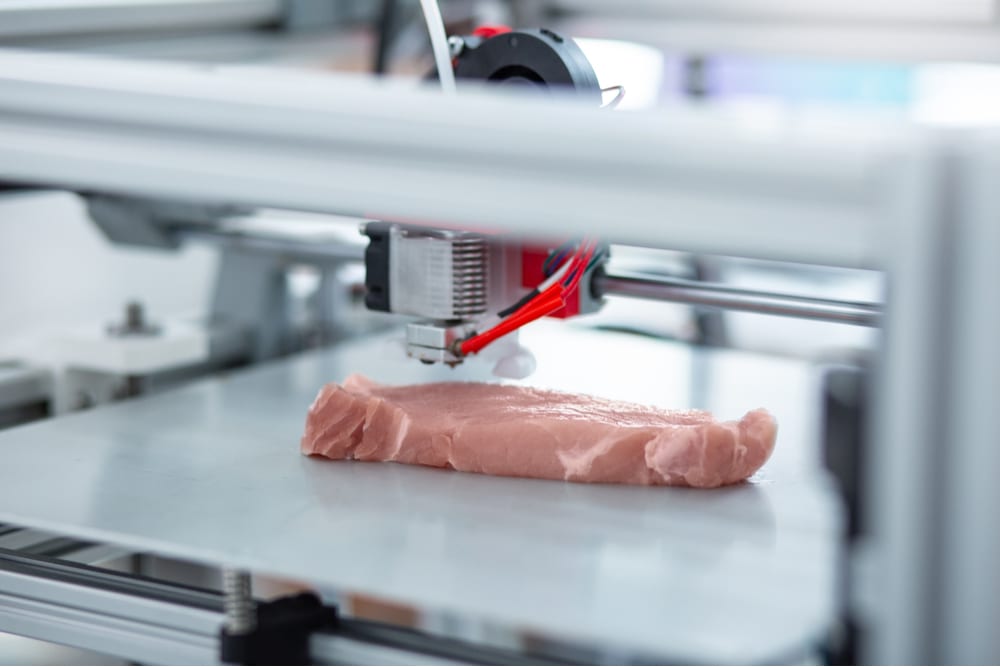
By: Tilman Reinhardt, Alessandro Monaco, and Kai Purnhagen (European Law Blog)
The opening of the Paris Olympics on July 26, 2024, coincided with a potentially transformative moment in one of France’s most iconic culinary traditions. Gourmey, a French startup specializing in cultivated meat, submitted applications for novel food authorization for its cultivated foie gras in the EU, as well as in Singapore, Switzerland, the United Kingdom, and the United States. This marks the first-ever authorization process for a cultivated meat product in the EU, signaling a potential “legal disruption” and attracting significant interest from both policymakers and researchers.
Cultivated meat, derived from animal cells grown in controlled environments outside of living animals, is seen as a promising solution to the environmental and ethical concerns associated with conventional meat production. However, there are also acknowledged scientific, sustainability, and regulatory hurdles. Despite these challenges, the first commercial cultivated meat product was introduced in Singapore in 2020, after the American company Eat Just received regulatory approval for chicken nuggets partially composed of cultivated cells. As of May 2024, these nuggets are now available in Singaporean retail stores, and other cultivated meat products have since been approved in Singapore, the United States, and Israel. Regulators in various countries are working closely with innovators to create pathways for these products to reach the market.
The EU, however, has not yet taken a leading role in regulating cultivated meat. Most food innovations, including cultured meat, fall under the EU’s novel food framework, outlined in Regulation (EU) No 2015/2283. While this framework is praised for its thoroughness, it has been criticized for stifling innovation due to its lengthy and complex procedures. Innovators are also concerned about political interference in the approval process, as cultivated meat faces strong opposition in some EU Member States. For instance, since 2020, the French legislature has repeatedly attempted to ban the use of meat-related terms for alternative protein products. In November 2023, the Italian government went a step further, enacting Law No. 172/2023, which prohibits the production and sale of cultivated meat…
Featured News
Belgian Authorities Detain Multiple Individuals Over Alleged Huawei Bribery in EU Parliament
Mar 13, 2025 by
CPI
Grubhub’s Antitrust Case to Proceed in Federal Court, Second Circuit Rules
Mar 13, 2025 by
CPI
Pharma Giants Mallinckrodt and Endo to Merge in Multi-Billion-Dollar Deal
Mar 13, 2025 by
CPI
FTC Targets Meta’s Market Power, Calls Zuckerberg to Testify
Mar 13, 2025 by
CPI
French Watchdog Approves Carrefour’s Expansion, Orders Store Sell-Off
Mar 13, 2025 by
CPI
Antitrust Mix by CPI
Antitrust Chronicle® – Self-Preferencing
Feb 26, 2025 by
CPI
Platform Self-Preferencing: Focusing the Policy Debate
Feb 26, 2025 by
Michael Katz
Weaponized Opacity: Self-Preferencing in Digital Audience Measurement
Feb 26, 2025 by
Thomas Hoppner & Philipp Westerhoff
Self-Preferencing: An Economic Literature-Based Assessment Advocating a Case-By-Case Approach and Compliance Requirements
Feb 26, 2025 by
Patrice Bougette & Frederic Marty
Self-Preferencing in Adjacent Markets
Feb 26, 2025 by
Muxin Li